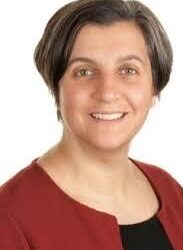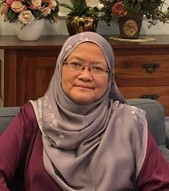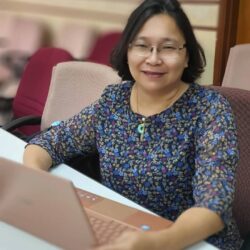Date: 30/07/2021
Time: 4:00 p.m. GMT+8
Venue: Virtual
Organised by
Malaysian Association of Applied Linguistics
and Co-organized
Faculty of Education, Languages and Psychology, SEGi University & the Centre for Modern Languages and Literature, Universiti Tuanku Abd Rahman (UTAR)
Symposium Details
FRIDAY 30th July 2021 4pm
Platform: ZOOM and Facebook Live
Note: Due to limitations of the hosting university’s Zoom account, excess viewers will be viewing the symposium through Facebook Live on the MAAL Facebook Event Page at https://fb.me/e/2gDELYb97
Objectives of Symposium
- To promote the study of child language disorders to language practitioners and linguists.
- To encourage more language practitioners in Malaysia to explore the field of psycholinguistics and clinical linguistics.
- To provide a platform where speakers from the three countries can share their research findings.
KEYNOTE SPEAKER
Assessing Chinese-speaking children with Speech and Language Therapy Needs – Challenges faced by SLTs in China
Professor Dr. Lixian JIN
University of Nottingham Ningbo China
Abstract
The Chinese healthcare system is facing the challenges to provide service to at least 70 million children and adults who need speech and language therapy healthcare. This number is based on a conservative estimation of 5% of the total population who would require such a service worldwide. However, little information is available about clinical practices and assessments in Chinese. To identify the problems, we conducted a project funded by the British Academy of Medical Sciences to explores the circumstances and provisions for assessing Mandarin-speaking clients. The investigation used three methods of a survey, interviews and observations. We collected 145 questionnaires from Chinese speech and language therapists (SLTs) who have worked specifically with clients who have SL problems to help identify key difficulties in assessing their clients. Seven individual interviews with SLTs and two focus-group interviews with 20-30 SLTs respectively were conducted to probe the reasons underlying the difficulties and to explore strategies to ameliorate current conditions. Clinical observation sessions were carried out to observe therapists’ working conditions. The analysis revealed at least three fundamental problems: a severe shortage of reliable and valid speech and language assessment tools in Chinese; a lack of specific training to use those available tools; the adaptation of assessment tools from other languages may not fit the Chinese contexts culturally, linguistically and possibly clinically. Therefore, it becomes crucial to develop and make accessible to SLTs appropriate standardised speech and language assessment tools; to establish systematic and affordable pre- and in-service SLT training programmes in China.
Biodata:
Dr. Lixian Jin is Chair Professor in Applied Linguistics at the University of Nottingham Ningbo China, after being Chair Professor in Linguistics and Intercultural Learning and having worked at a British university in the UK for 23 years. She has taught linguistics, English language teaching, intercultural communication, qualitative research methods and clinical linguistics and assessments; and led international research teams in Britain, Singapore, Malaysia and China on ELT, intercultural learning, children with dyslexia and language assessment tools in Chinese, Malay and Guajarati for children with language impairment. She has conducted many school and university English teacher training and workshops over the past 25 years in China and worldwide. Her over 200 publications focus on researching cultures of learning, intercultural communication, metaphor and narrative analysis and bilingual clinical assessments.
PLENARY SPEAKER 1
Learning of grammar in typical and atypical language development: language specific vulnerabilities and clinical perspectives
Associate Professor Dr. Maria Garraffa,
Department of Speech & Language Therapy
University of East Anglia, UK.
Abstract:
Implicit learning mechanisms associated with detecting structural regularities have been proposed to underlie both the long-term acquisition of linguistic structure and a short-term tendency to repeat linguistic structure across sentences (structural priming) in typically developing children. Recent research has suggested that a deficit in such mechanisms may explain the inconsistent trajectory of language learning displayed by children with Developmental Learning Disorder (DLD). They may learn less from each linguistic experience than typically developing children, and so require more input to achieve the same learning outcome with respect to syntax. We will present studies on both typical and atypical grammatical development, supporting the idea that structural priming is an effective technique for manipulating both input quality and quantity to determine precisely how DLD is related to language input, and to investigate how input tailored to take into account the cognitive profile of this population can be optimised in designing interventions.
Biodata
Maria Garraffa is an Associate Professor at University of East Anglia, UK in the Dept of Speech & Language Therapy. She was previously at Heriot- Watt University (Edinburgh). She teaches and does research on Language Acquisition and impairment. Applied in nature, her research draws upon Linguistics and Cognitive psychology to focus on psychological aspects of language acquisition in different socially and psychologically deprived circumstances, such as the case of immigrant children, children with learning impairments and speakers of minority languages. In collaboration with leading scholars. Some of her key achievements include the development of the first UK psychological test to assess reading in adults with language disorders and a model to investigate vulnerable aspects of language in children with language impairment and adults suffering from stroke. Developed in parallel with a core interest for language impairment, her research on multilingualism addresses the effects of early second language learning in immigrants and people speaking heritage languages. She was Research fellow at Universita’ degli studi di Siena, Newcastle University and The Edinburgh University.
PLENARY SPEAKER II
Sentence Repetition Task & Assessment of language abilities of multilingual children in Malaysia
Associate Professor Dr. Rogayah A Razak
Dept of Postgraduate Studies, SEGi University, Malaysia
Many Malaysians are at least bilingual if not multilingual. Monolinguals are rare. It is reported that there are over 130 languages spoken in Malaysia. The challenges in assessing and diagnosing language disorders in children from multilingual backgrounds and the lack of locally produced assessment tools have been well documented. This presents linguistic and cultural biases that hinder adequate assessment of language difficulties in multilingual children. This presentation will talk about a sentence repetition (SR) tool which can be used to measure grammatical abilities (morphology and syntax) among monolingual/multilingual typical and atypical children. SR has been extensively described as a useful tool in identifying language processing abilities and weaknesses. It has been widely used clinically in identifying children with language difficulties, in particular children with developmental language disorder (DLD). Data will be drawn from 3 studies: SR on monolingual Malay children, SR on bilingual Malay children and SR on multilingual Chinese children. We need to start the research from monolingual children, but the ultimate destination is the description of multilingual abilities and multilingual language assessment tools.
Biodata
Rogayah A Razak PhD, is an associate professor (psycholinguistics/clinical linguistics) at SEGi University in the Dept. of Postgraduate Studies, Faculty of Education, Language & Psychology. She had served 35 years in public universities in Malaysia (of which 21 years was at the Speech Science Dept., Faculty of Health Science, UKM). She has had diverse education/work experience: English literature education, TESL and Malay Linguistics. She retooled in psycholinguistics and clinical linguistics at UKM. She teach courses in morphology, syntax, semantics, and clinical linguistics. Her research interests cover psycholinguistics and clinical linguistics i.e., linguistic analysis of language of individuals: children with developmental language disorders (DLD), hearing impairment, autism, dyslexia) and adults (aphasia); developmental language and Malay grammar. She has published widely in WOS ISI journals. She pioneered the Clinical Linguistics program. She invented and commercialized a tool ‘Alat Ujian Bahasa Kanak-Kanak Prasekolah Melayu (MPLAT) which is now used nation-wide aside from 8 other local tests/prototypes. She was a Fulbright Visiting Scholar alumnus. She has headed and co-headed international grants (US & UK) such as the GCRF UK grant in 2020. Recently, she was made a consultant to the GIBBER bilingual/biliterate child development at Centre for Research in Child Development, NIE/NTU Singapore.




